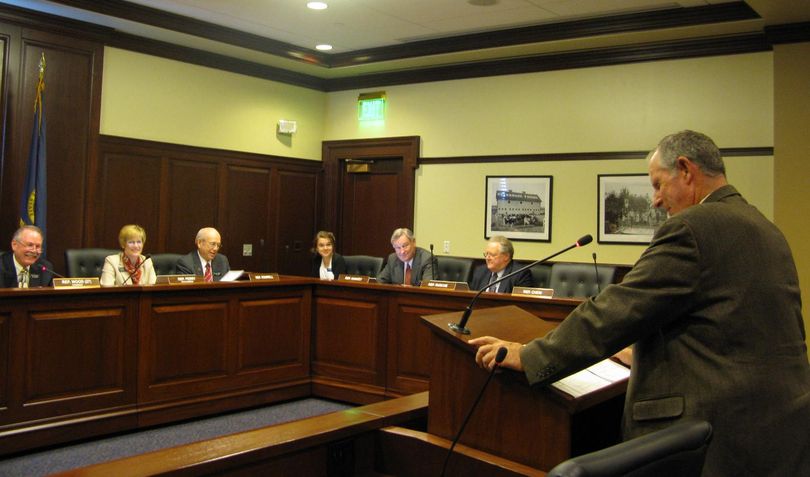House H&W votes unanimously to introduce bills to expand Medicaid, eliminate CAT fund

The House Health & Welfare Committee voted unanimously this morning to introduce two bills proposed by Rep. Tom Loertscher, R-Iona: One to eliminate the county medical indigency and state catastrophic health care program; and the other to expand Medicaid. Together, the two moves would save Idaho’s local property taxpayers $478 million over 10 years, Loertscher told the committee. “That’s a substantial amount of money,” he said. “I think that’s a very conservative number.”
Rep. John Vander Woude, R-Nampa, said, “I don’t mind having the discussion, but I really don’t want Medicaid expansion.” He said, “We’re basically shifting property tax to federal income tax, is what we’re doing. But it is a shift, it’s not a savings in cost.” Rep. John Rusche, D-Lewiston, countered that Idahoans are paying twice now – once in their local property taxes to pay for indigent medical costs, and “once through our federal taxes that we wouldn’t be able to use if didn’t expand Medicaid.”
Loertscher told the committee that the CAT program has seen “exponential growth,” and said, “There’s no end in sight.” He said, “This is one of those unfunded mandates that the state passed a long time ago.”
Committee Chairman Fred Wood, R-Burley, praised Loertscher for bringing the proposals forward. “I think this is one of the things that does need to happen in the reform of medical care in the state – we certainly have to reform the whole thing, not just part of it,” he said.
Rusche said swapping the CAT program for a Medicaid expansion – which would be 100 percent federally funded for the first three years, then gradually cutting back to 90 percent federal funding – offers more than just savings. It also offers, he said, “the opportunity to really do better. Our current CAT fund is just reimbursement, it’s not a health plan. We get a bill for services that are done really in the most expensive manner.” By moving the population that now applies to counties for catastrophic medical expenses into Medicaid, mental health services would be covered, Rusche said, along with preventive health care. “This is really an advantage to the mental health services that we have in the state of Idaho,” he said. “It may actually improve the suicide and other fatality problems that we have.”
Loertscher said, “If you’re going to do Medicaid expansion, if that’s your desire, now’s the year.” If Idaho waits a year, it’d lose one year of eligibility for the 100 percent funding, changing the bottom line. Vander Woude said, “It looks like a net savings with a lot of unknowns.”
